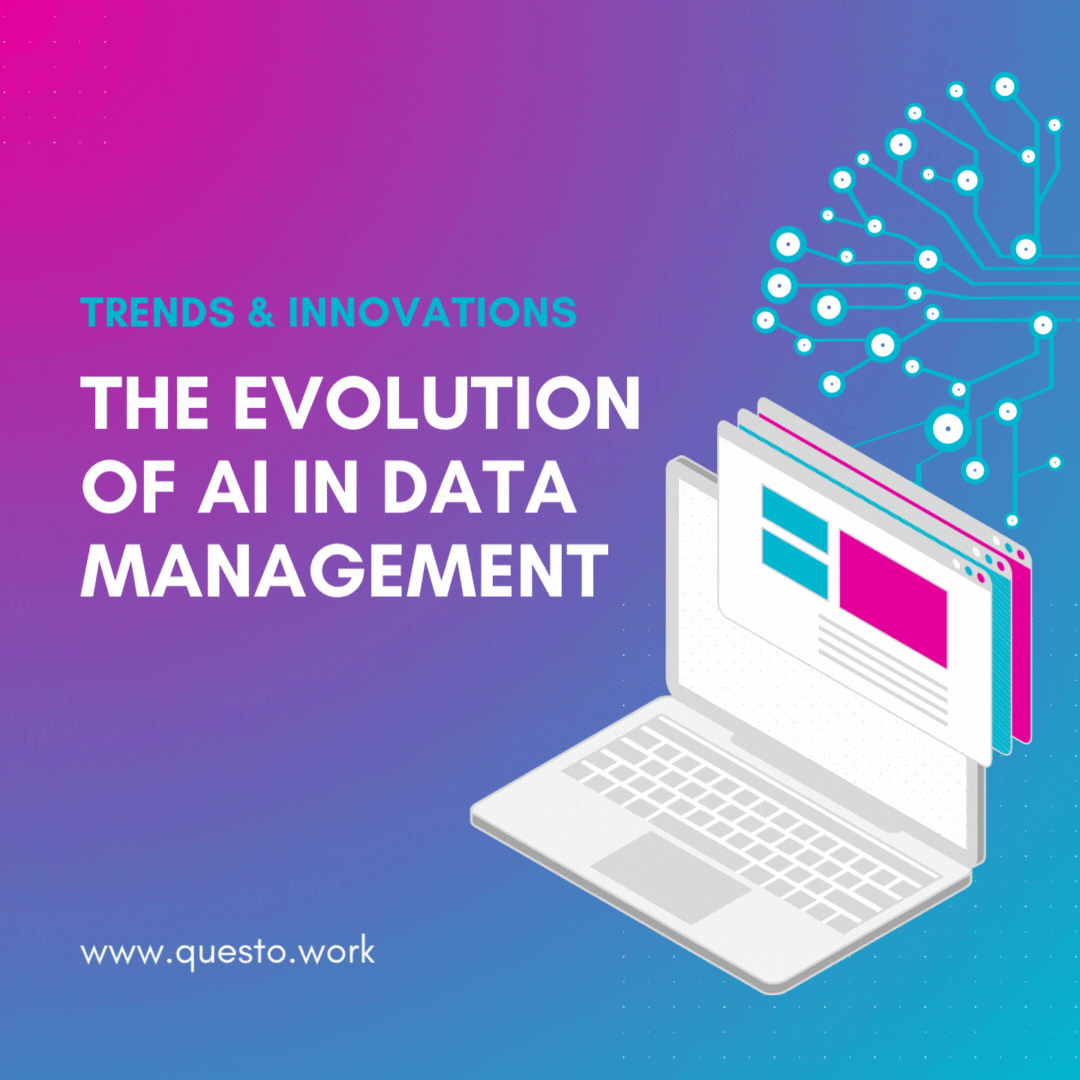The Evolution of AI in Data Management
Trends and Innovations
In recent years, artificial intelligence (AI) has become a transformative force in various industries, and data management is no exception. As organizations continue to grapple with ever-increasing volumes of data, AI’s role in managing, analyzing, and deriving insights from this data has become crucial. This blog post explores the evolution of AI in data management, highlighting key trends and innovations shaping the landscape.
The Rise of AI in Data Management
AI’s journey in data management began with the need to handle large datasets more efficiently. Traditional data management systems were often limited by their ability to process and analyze data quickly. AI introduced new possibilities, enabling more sophisticated data processing techniques and predictive analytics.
Initially, AI’s role was limited to automating routine tasks such as data entry and cleansing. However, as AI algorithms and machine learning models advanced, their applications expanded. Today, AI-driven data management systems can perform complex tasks, including natural language processing, pattern recognition, and anomaly detection.
Key Trends in AI-Driven Data Management
- Automated Data ProcessingAutomation is one of the most significant trends in AI-driven data management. AI tools can now automate various data processing tasks, from data extraction and transformation to loading (ETL) processes. This reduces the need for manual intervention, allowing organizations to process data faster and more accurately.
- Predictive Analytics and ForecastingPredictive analytics powered by AI has revolutionized how businesses make decisions. By analyzing historical data, AI models can forecast future trends, helping organizations anticipate changes in the market, customer behavior, and operational needs. This predictive capability is invaluable for strategic planning and risk management.
- Data Quality and GovernanceEnsuring data quality and governance has always been a challenge. AI is now being used to enhance data quality by identifying and rectifying errors, inconsistencies, and duplicates. AI-driven data governance frameworks also help organizations comply with regulatory requirements and maintain data integrity.
- Natural Language Processing (NLP)NLP is transforming how organizations interact with their data. AI systems with NLP capabilities can understand, interpret, and generate human language, making it easier to search, query, and analyze data. This has led to the development of intelligent chatbots and virtual assistants that provide real-time data insights.
- Real-Time Data AnalyticsWith the advent of the Internet of Things (IoT) and the increasing volume of real-time data, AI has become essential for real-time data analytics. AI algorithms can process and analyze data as it is generated, providing immediate insights and enabling timely decision-making.
- Edge Computing and AIEdge computing, which involves processing data closer to the source rather than in a centralized data center, is gaining traction. AI plays a crucial role in edge computing by enabling real-time data processing and analytics at the edge of the network. This reduces latency and bandwidth usage, making it ideal for applications such as autonomous vehicles and industrial IoT.
Innovations Driving the Future
- AI-Driven Data IntegrationIntegrating data from disparate sources has always been challenging. AI-driven data integration tools use machine learning to identify relationships between different datasets, making it easier to combine and analyze them. This results in more comprehensive and accurate insights.
- Explainable AI (XAI)As AI systems become more complex, understanding their decision-making processes has become essential. Explainable AI (XAI) aims to make AI models more transparent and interpretable. In data management, XAI helps organizations understand how AI algorithms process and analyze data, ensuring trust and accountability.
- Self-Service AnalyticsEmpowering non-technical users to analyze data independently is a growing trend. AI-driven self-service analytics platforms provide intuitive interfaces and natural language querying capabilities, enabling business users to derive insights without relying on data scientists or IT teams.
- AI-Powered Data Privacy and SecurityData privacy and security are critical concerns in today’s digital landscape. AI is being used to enhance data security by identifying potential threats and vulnerabilities. AI-driven privacy tools also help organizations comply with data protection regulations by automatically masking or anonymizing sensitive data.
- AI and Blockchain IntegrationIntegrating AI with blockchain technology offers promising possibilities for data management. Blockchain provides a secure and transparent ledger, while AI enhances data processing and analytics. This combination can improve data integrity, traceability, and trust in various applications, from supply chain management to financial services.
The evolution of AI in data management is marked by continuous innovation and transformative trends. As AI technologies advance, their applications in data management will become even more sophisticated, driving efficiency, accuracy, and strategic decision-making. Organizations that embrace these trends and innovations will be well-positioned to harness the full potential of their data, gaining a competitive edge in an increasingly data-driven world.
